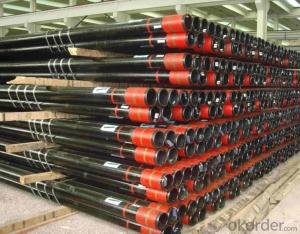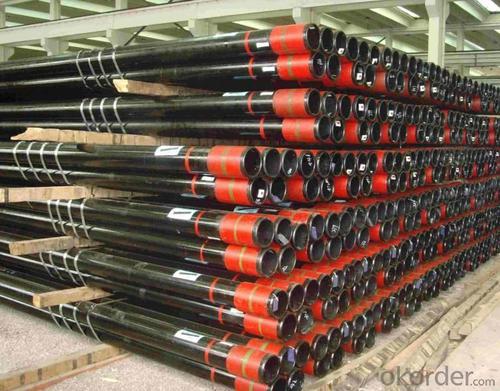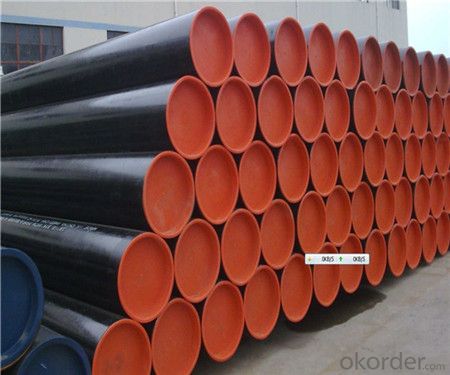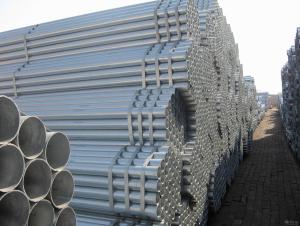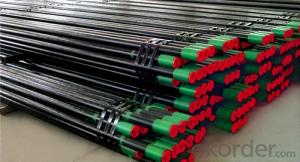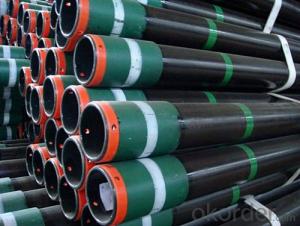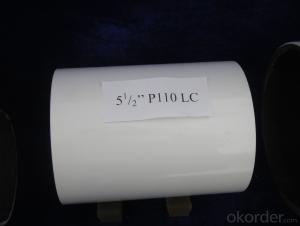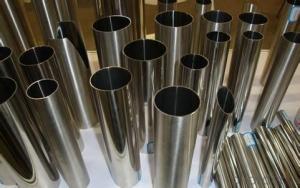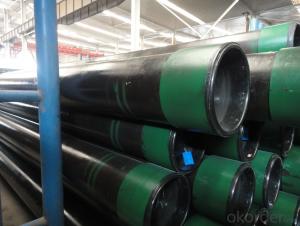ASME API 5L J55 Casing Pipe With good quality
- Loading Port:
- Tianjin
- Payment Terms:
- TT or LC
- Min Order Qty:
- 25 m.t.
- Supply Capability:
- 10000 m.t./month
OKorder Service Pledge
OKorder Financial Service
You Might Also Like
1、Structure of High Quality J55 Casing Pipe:
ERW steel pipe is electric resistance welding, the abbreviation for ERW for transporting oil and natural gas vapor liquid objects, can meet the requirements of high and low pressure, the transport in the world with pipe sector accounted for a pivotal position.
2、Main Features of High Quality J55 Casing Pipe:
• High manufacturing accuracy
• High strength
• Good visual effect
• Reasonable price
• Small inertia resistance
• Strong heat dissipation ability
3、High Quality J55 Casing Pipe Specification:
Standard | GB, DIN, ASTM ASTM A106-2006, ASTM A53-2007 |
Grade | 10#-45#, 16Mn 10#, 20#, 45#, 16Mn |
Thickness | 1 - 33 mm |
Section Shape | Round |
Outer Diameter | 21 - 610mm |
Place of Origin | Tianjin, China (Mainland) |
Secondary Or Not | Non-secondary |
Application | Hydraulic Pipe |
Technique | Cold Drawn |
Certification | API |
Surface Treatment | factory state or painted black |
Special Pipe | API Pipe |
Alloy Or Not | Non-alloy |
Length | 5-12M |
Outer Diameter | 21.3-610mm |
Grade | 20#, 45#, Q345, API J55, API K55, API L80, API N80, API P110, A53B |
Standard | ASME, ASTM |
1) Material:20#(ASTM A 106/A53 GRB.API5LGRB,GB),45#,16Mn,10#.
2) Specification range:OD:21.3-610mm,WT:6-70mm,length:6-12m or according to the requirement of clients.
3) Excutive standards:GB,ASME API5L.ASTM A 106/A53,Despite of the above standards,we can also supply seamless steel pipe with standard of DIN,JIS,and so on,and also develop new products according to the requirements of our clients!
4) Surface:black lacquered,varnish coating or galvanized.
5) Ends:Beveled or square cut,plastic capped,painted.
6) Packing:bundles wrapped with strong steel strip,seaworthy packing.
4、Packaging & Delivery
Packaging Details: | seaworthy package,bundles wrapped with strong steel strip |
Delivery Detail: | 15-30days after received 30%TT |
5、FAQ of High Quality J55 Casing Pipe:
①How is the quality of your products?
Our products are manufactured strictly according to national and internaional standard, and we take a test
on every pipe before delivered out. If you want see our quality certifications and all kinds of testing report, please just ask us for it.
Guaranteed: If products’ quality don’t accord to discription as we give or the promise before you place order, we promise 100% refund.
②How about price?
Yes, we are factory and be able to give you lowest price below market one, and we have a policy that “ for saving time and absolutely honest business attitude, we quote as lowest as possible for any customer, and discount can be given according to quantity”,if you like bargain and factory price is not low enough as you think, just don’t waste your time.Please trust the quotation we would give you, it is professional one.
③Why should you chose us?
Chose happens because of quality, then price, We can give you both.Additionally, we can also offer professional products inquiry, products knowledge train(for agents), smooth goods delivery, exellent customer solution proposals.Our service formula: good quality+good price+good service=customer’s trust
SGS test is available, customer inspection before shipping is welcome, third party inspection is no problem.
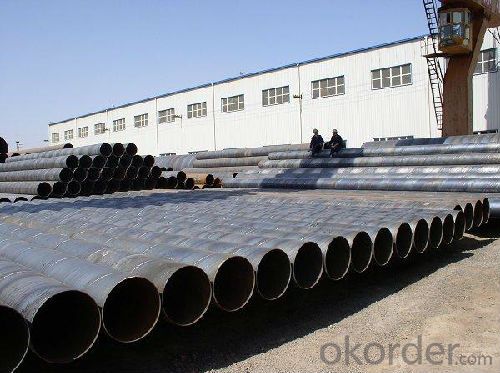
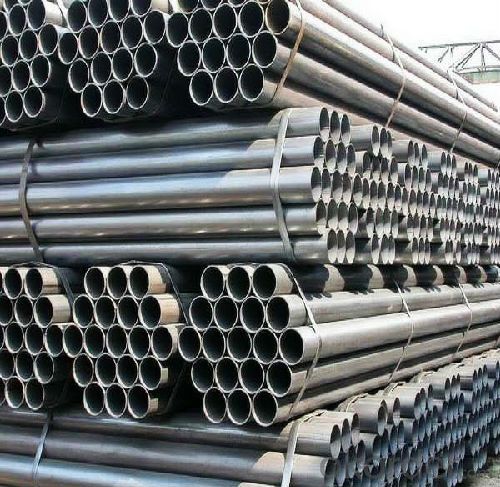
- Q: How can the immersed pipe pile put steel cage into the steel pipe? Which expert to answer?
- Pile: refers to the use of hammer piling method and pile vibration method, steel casing with valve type pile tip or precast reinforced concrete pile boots into the soil, then pouring concrete (or first in the tube into the cage), while hammering or vibration of a pile side pull tube. The former is called hammer sinking pipe cast-in-place pile, and the latter is called vibrating sinking pipe cast-in-place pile.
- Q: How do steel pipes perform in corrosive environments?
- Steel pipes perform well in corrosive environments due to their inherent resistance to corrosion. Steel is a durable and strong material that can withstand exposure to various corrosive elements such as moisture, chemicals, and saltwater. Additionally, steel pipes can be further protected through coatings or linings to enhance their resistance to corrosion, making them a reliable choice for applications in corrosive environments.
- Q: What is the cost of steel pipes compared to other pipe materials?
- The cost of steel pipes compared to other pipe materials can vary depending on several factors including the size, grade, and availability of the specific pipe materials. However, in general, steel pipes tend to be more cost-effective compared to other pipe materials. This is because steel is a widely available and versatile material that can be easily manufactured and fabricated into various pipe sizes and shapes. Compared to materials like copper, stainless steel, or plastic, steel pipes are often more affordable due to their lower manufacturing costs. Additionally, steel pipes have a longer lifespan and superior durability, which makes them a cost-effective choice in the long run. They are resistant to corrosion, withstand high pressure and temperature, and can be used in a wide range of applications including plumbing, construction, and infrastructure projects. It is important to note that the cost of steel pipes can still vary depending on market conditions, demand, and location. However, overall, steel pipes are generally considered to be a cost-effective option compared to other pipe materials.
- Q: What are the common sizes of steel pipes?
- The common sizes of steel pipes vary widely, but some common diameters range from 1/8 inch to 36 inches, with wall thicknesses typically ranging from Schedule 10 to Schedule 160.
- Q: How are steel pipes used in the oil and gas industry?
- Steel pipes are widely used in the oil and gas industry for various purposes. They are primarily used for transporting and distributing oil and gas from extraction sites to refineries and end consumers. Steel pipes are also used in drilling operations, where they are utilized as casing and tubing to extract oil and gas from wells. Additionally, steel pipes are employed in the construction of storage tanks, pipelines, and other infrastructure required for the production, processing, and transportation of oil and gas. Overall, steel pipes play a crucial role in ensuring the efficient and safe operation of the oil and gas industry.
- Q: What is the weight of a steel pipe?
- The weight of a steel pipe can vary depending on its dimensions and thickness.
- Q: Can steel pipes be used for underground compressed air pipelines?
- Yes, steel pipes can be used for underground compressed air pipelines. Steel pipes are durable, corrosion-resistant, and have high strength, making them suitable for withstanding the pressure and environmental conditions of underground installations. Additionally, steel pipes can be easily welded and are readily available in various sizes, allowing for flexibility in designing the compressed air pipeline system.
- Q: How do you transport and store steel pipes?
- Steel pipes are typically transported using trucks, railcars, or ships. They are stored in designated areas or warehouses, either vertically or horizontally depending on their size and weight. It is important to ensure proper packaging, lifting equipment, and securing methods during transport to prevent damage or accidents. Additionally, storing steel pipes in dry, well-ventilated areas away from moisture and corrosive substances helps maintain their quality and longevity.
- Q: How does galvanization protect steel pipes from corrosion?
- Galvanization protects steel pipes from corrosion by creating a protective zinc layer on the surface of the steel. This zinc layer acts as a barrier, preventing moisture and oxygen from reaching the steel, thus inhibiting the formation of rust and corrosion.
- Q: Can steel pipes be used for oil refineries?
- Yes, steel pipes can be used for oil refineries. Steel pipes are commonly used in oil refineries due to their high strength, durability, and resistance to corrosion. They can handle the high pressure and temperature requirements of the oil refining process, making them suitable for transporting and distributing various petroleum products within the refinery.
Send your message to us
ASME API 5L J55 Casing Pipe With good quality
- Loading Port:
- Tianjin
- Payment Terms:
- TT or LC
- Min Order Qty:
- 25 m.t.
- Supply Capability:
- 10000 m.t./month
OKorder Service Pledge
OKorder Financial Service
Similar products
Hot products
Hot Searches
Related keywords
